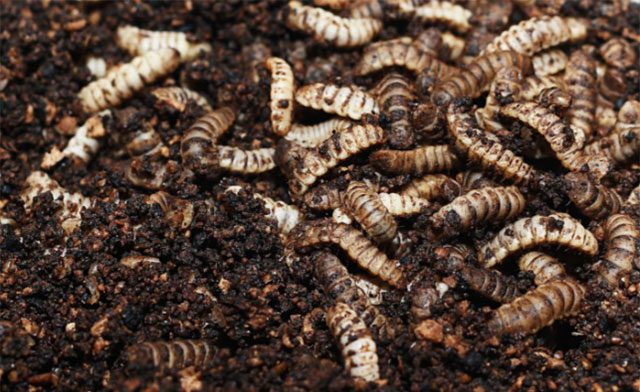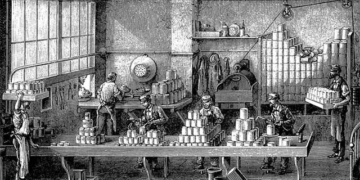Raising larvae using kitchen scraps and household waste is being implemented by many farms in China as a rich protein source for livestock and fertilizers.
According to Chinese scientists and international experts in the field, insects raised on kitchen waste and other organic waste can become a sustainable alternative protein source for the Chinese population, especially as the country faces dwindling food reserves.
These insects will serve as a nutritious feed source for livestock, promoting animal health while addressing concerns over depleting fish stocks and significant environmental issues surrounding livestock farming.
According to the Shanghai Observer, densely populated urban areas in China generate a massive amount of kitchen waste daily. Specifically, in Shanghai alone, the average daily wet waste is 9,329 tons from March to July 2022. However, the city can only process 8,200 tons per day, leaving a deficit of about 1,100 tons of unprocessed waste each day.
Taking advantage of this reality, scientists have come up with the idea of using this biodegradable waste as a feed source for insects. Thus, insect farming using waste could provide a potential solution to both food shortages and household waste management.
Worms raised on treated wet waste convert organic matter into a rich source of nutrients—a process that is efficient, harmless, and sustainable.

Black soldier fly larvae consuming organic waste before they are harvested for livestock feed and other products. (Photo: Shutterstock).
The insect farm established by the Shanghai Urban Construction Investment Group is experimenting with this process, utilizing 50 tons of treated wet waste to raise 11 tons of protein-rich larvae and produce 12.8 tons of organic fertilizer daily.
According to an article published by the Guangdong Chemical Industry journal, the farm uses black soldier flies (BSF) from tropical grasslands in South America.
According to Mr. Ma Cong, the project manager, this insect species was chosen due to its short life cycle, approximately 35 days, and its robust resilience, making it ideal for cultivation.
“By grinding the waste and adjusting the moisture content, scientists have created a suitable environment for BSF larvae. In just one week, third-stage larvae can rapidly develop into fifth-stage BSF larvae with high protein and fat content,” he said.
“The waste produced by these larvae also contains many organic compounds such as nitrogen, phosphorus, and potassium, along with beneficial bacteria, making it an excellent source of alternative organic fertilizer,” Mr. Ma added.
According to the article, harvested larvae can be used for animal feed, pet food, biofuel, and other products. This process is highly sustainable, with some healthy larvae selected to continue breeding after pupation.
While insect farming using waste is just beginning in China, this technology has been utilized for a long time in the Netherlands to provide a sustainable and nutrient-rich protein source for livestock.
Dutch company Protix, a pioneer in this technology, has successfully converted 65,000 tons of waste into 14,000 tons of larvae. As a result, insect-based products for pets, fish, and livestock had a retail value of over 70 million euros (77 million USD) in 2023.
According to Protix CEO Kees Aarts, the nutrition and protein-rich environment from insects is an important resource for the future, with their use in animal feed serving as a foundation.
Mr. Aarts stated: “Insect protein improves liver quality and the health of salmon skin; it enhances the coat, breath, and digestive health of dogs; and it reduces diarrhea rates and mortality in piglets and chickens.”
“BSF has high feed efficiency, a short life cycle, and can consume low-grade organic materials. While requiring less land and water, it can produce protein equivalent to that of poultry meat or beef offal,” the Protix CEO added.
In addition to providing a more sustainable alternative to traditional livestock farming, the diet of insects can be adjusted to include materials beyond everyday household waste, thereby expanding the potential to recycle most legal and safe organic materials into valuable protein sources.
In China, where the potential for the insect farming industry is vast, treating wet waste to ensure the removal of impurities will be essential.
According to Mr. Aarts, the future of insect protein is promising: “As traditional protein sources continue to dwindle and concerns about climate change grow, insect protein offers a sustainable, nutritious, and efficient alternative.”


















































